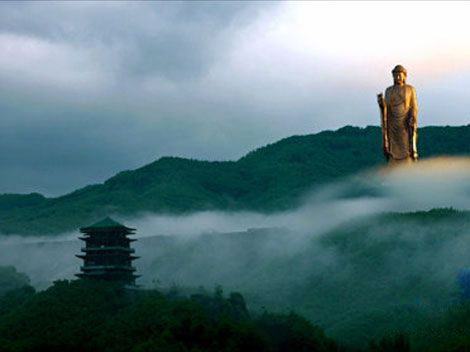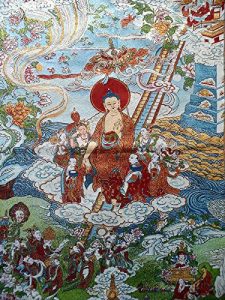May, 20, 2024

Buddhist philosophy (Dhamma) provides intelligence to prevent & resolve conflicts within individuals & among them. So far it isn’t clear if proper studies have been done to quantify its contribution to prevent & resolve conflicts globally.
The Buddha advised rulers to treat their subjects with; generosity, gentle words, working for public benefit & treating all equal (Sathara Sangraha Vasthu). It is a practical way to prevent conflicts in any community & economic growth especially in India & China may lead to prove the fact.
Constructing temples with murals depicting the life of Buddha & his statues had also been a practice to prevent conflicts via self discipline. SL, Thailand, Myanmar & Great China are among the states which still focus on such methods. The tallest Buddha statue (208 m) in the world is located in Zhaocun, China. The ‘Avukana’ statue in SL (influenced by ‘Gandhara’ - Kandahar, Afghanistan & ‘Amaravati’ – India, schools of art) is also a notable standing statue (Ref. Nandadeva Wijesekera). Among the murals, Buddha visiting his mother in heaven to preach ‘Abhidamma’ is well known. In modern day reading with artificial intelligence (AI), one might equate the act to an ‘online meeting’.
AI & Dhamma
Some were critical when President Ranil wanted to research on the link between AI & Dhamma. Experienced conflict managers would know that AI can be used to mislead ill informed masses (especially Sri Lankans), to ignite social unrest which in turn will reverse economic development.
Minds can draw peace & conflict.
French scientists proved that AI can turn brainwaves into paintings (Ref. Pitie Salpetriere hospital research). They have used AI to reconstruct visualizing in a human brain to create artworks. In other words the images a human visualizes when thinking of an object, experience or a situation can now be printed on paper or displayed on screen. These should be managed with care as those who live by conflicts would continue their agenda armed with AI (as in Kazakhstan, Ukraine, Gaza, Pakistan & even SL). The ‘multi-polar’ world which exists due to the rise of Russia, China & India is therefore an opportunity for peace with AI.
Chinese contribution
China is the only permanent member of the UN Security Council with a civilization based on the Buddhist philosophy. Taoism & teachings of Confucius also influenced the Chinese civilization. At a time when spot lights fall on AI & Dhamma, China recently agreed with France on using AI for good of all humans & took a professional approach with the USA to mitigate the risks of AI at the first inter-governmental dialogue on AI in Geneva last week. Practicing Buddhists may use the intelligence of the Buddha within AI to prevent conflicts in SL
Intelligence of a Buddha
Buddhist teachings indicate that one should develop below 3 specific areas of intelligence to enlighten (Ref life of Buddha).
After enlightening Buddha preached that (his philosophy) the Dhamma;
Practicing Buddhists would know that Dhamma is timeless. They shall therefore, educate fellow countrymen that AI may develop further to influence human thinking in un-precedent ways & may even confuse many disciples. However, digital world will be a safe place to store the Dhamma. Still the risk of distorting the Dhamma by the ill informed & the destructive shall continue.
“The information age offers much to mankind, & I would like to think that we will rise to the challenges it presents. But it’s vital to remember that information in the sense of raw data isn’t knowledge, that knowledge isn’t wisdom, & that wisdom isn’t foresight. But information is the first essential step to all of these” – Arthur C. Clarke

Photos: Zhaocun Statue & a mural from Tibet.
(Views expressed are personal).
Video Story